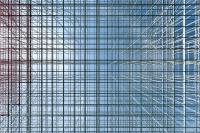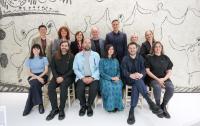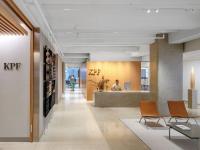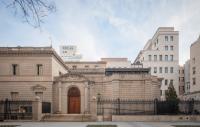Table-Landscape: Plot B4, Vanke Design Commune, Liuxiandong, Shenzhen
Shenzhen, China
Project description
Building Area: 4792sqm
Design Period: 2014—2017
Category: Experimental
This is a semi-propositional experimental underground development. The ground level must be spared for public space, while the underground level may be used as creative office and public service facilities. But how can an underground area of more than 7000 square meters be effectively opened to use while providing the same level of ventilation and lighting as the ground layer? How could we incubate an extraordinary shared yard through design?
The flat level reminds people of a smooth tabletop. What if it’s composed of several tabletops in varied forms? Inspired by the idea of breaking up the whole into parts, we create a tabletop that appears as an integral whole but is actually propped up by a number of tables in different structural forms. Unexpected spaces are thus created to dialogue with each other, while the gaps between tables allow for the possibility of natural daylight and ventilation.
Each underground singular building may be conceived as a table in abstract sense, with the tabletop as urban green and the space underneath it as below-grade levels. The occupied spaces of the buildings are designed and combined on top of the structure. Those independent, simple and differentiated tables together form a nearly 4,800 sqm of double-level landscape.
After defining the spatial relations via structural diversity, we employ a basic grid module of 3M for control of functional dimension, and intersperses office spaces with public functions such as basketball court, forest square, stand, and coffee shop to offer experience spaces and routes of diverse hierarchies. Such a concept is inspired by the void-solid relations between public street and buildings as shown in the urban gray space of NOLLY MAP in Roma and the climatically responsive gray building spaces in Lingnan region.
Structure means space. Our design is a tribute to the classic structures in history. 31 buildings in varied forms can actually be attributed to six structural systems, i.e. core + beamless floor, frame structure + ordinary slab, colonnade + non-covered, shear wall + beamless floor, single-point supporting + beamless floor, and multi-point supporting + beamless floor, presenting a varied and fascinating table view on multiple levels and from multiple perspectives.
It is the second project of Node after Nansha Science Museum that has been accomplished in collaboration with structural engineers in schematic design phase.












